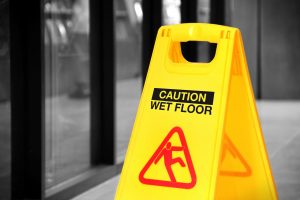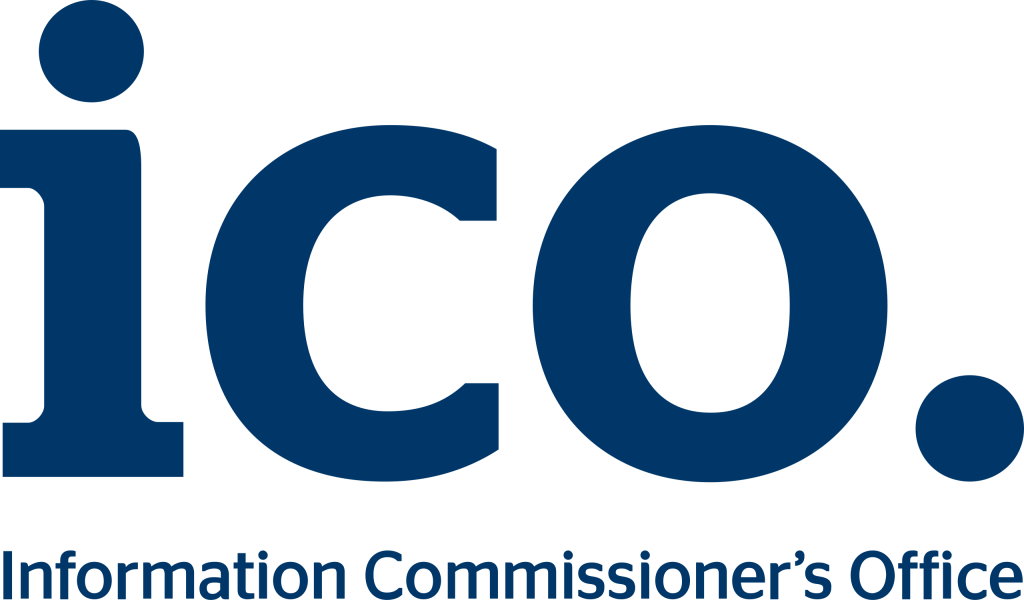In this guide, we discuss frequently asked questions regarding how to make a public liability compensation claim following an accident in a public place that left you with injuries.
We start by laying out the duty of care the party in control of a public space, or occupier, owes you and the eligibility criteria that you must meet to have a valid personal injury claim against them. Additionally, we provide information on the evidence you can use to support your case and how long you have to begin legal proceedings.
Later, we provide examples of how an accident in a public place could occur if an occupier breaches their duty of care, and the injuries that could be sustained as a result.
Furthermore, we look at how compensation payouts are calculated to address the impact of a physical injury and/or emotional suffering, including the way your quality of life has been affected and the financial losses you have incurred.
Finally, we discuss the benefits of working with a No Win No Fee solicitor from our panel and how they can offer their helpful services without requiring an upfront fee.
If you have any questions whilst or after reading this guide, please feel free to contact our friendly team. They are available 24/7 and can offer free advice. To reach out, you can:
- Call on 0800 408 7826.
- Use our web form to contact us about your potential claim.
- Talk to an advisor using our live support feature below.

Jump To A Section
- When Are You Able To Make A Public Liability Compensation Claim?
- What Evidence Do You Need To Make A Public Liability Claim?
- What Incidents Could Lead To A Public Liability Compensation Claim?
- Is There A Time Limit When Claiming Public Liability Compensation?
- How Much Compensation For Public Liability Claims?
- Why Use A No Win No Fee Solicitor To Make A Public Liability Compensation Claim?
- More Information About Personal Injury Claims
When Are You Able To Make A Public Liability Compensation Claim?
You may be entitled to launch a public liability compensation claim after an accident in a public place if you can prove third-party negligence. In tort law, negligence can be understood in the following way:
- A duty of care was owed to you. As outlined in the Occupiers’ Liability Act 1957, the occupier of a public space has a duty to ensure the reasonable safety of those using the space for its intended purpose.
- A breach of this duty occurred.
- This breach caused you to suffer physical and/or psychological injuries.
An occupier can also be referred to as a party in control of a public space. This can include, for example, shopping centres, public buildings, train stations, parks, leisure centres, gyms, restaurants and supermarkets.
To uphold the duty of care they owe, occupiers can take steps such as conducting regular risk assessments of their premises and addressing any hazards they become aware of that pose a risk of injury to the public. A failure to do so could mean you suffer an injury for which you could be eligible to claim compensation.
For further guidance on making a public liability injury claim, please contact an advisor on the number above.
What Evidence Do You Need To Make A Public Liability Claim?
It is important to gather supporting evidence when making a public liability compensation claim. As such, to give your case its best chance, you could:
- Request CCTV footage of yourself that shows the accident.
- Keep a diary of symptoms and treatments.
- You can request a copy of your medical records to show any diagnosis you were given and any medical treatment you required.
- Take photos of your injuries and the cause of the accident.
- Collect witness contact information so statements can be taken at a later date.
If you’re eligible, you could instruct a solicitor to assist you through the claims process. Our panel of public liability solicitors have experience of helping eligible claimants seek compensation for their injuries. They can help you gather evidence and bring forward your case within the relevant time frame.
Why not speak to an advisor about working with an expert solicitor from our panel who has experience with personal injury claims?
What Are Incidents Could Lead To A Public Liability Compensation Claim?
As mentioned, in order to start a public liability compensation claim, you need to prove an occupier breached their duty of care, and this caused you to suffer an injury as a result.
Below, we have provided some examples of how a public liability accidents could occur leading to injury.
- Supermarket staff are alerted to a spillage which causes a slip and trip hazard, but they do not signpost the hazard or clean it up because they haven’t received any health and safety training. As a result, a customer suffers a pelvic fracture after a slip and fall on the wet floor.
- Reports are made about a broken handrail on a set of stairs in a shopping centre but no steps are taken to address the hazard. As a result, a customer falls down the stairs and suffers a broken wrist and severe head injury.
- There are no warning signs placed to alert customers to a hot surface in a buffet-style restaurant. As a result, a customer suffers a severe burn injury after leaning on the surface.
The exact circumstances of different personal injury cases will vary so to discuss your specific circumstances and find out whether you’re eligible to claim compensation, call an advisor on the number above.

Is There A Time Limit When Claiming Public Liability Compensation?
The time limit to start legal proceedings for personal injury compensation is usually 3 years from the date the accident occurred. This is set out in the Limitation Act 1980.
Can You Claim On Behalf Of Someone Else?
In some instances, you could start a claim on behalf of someone else. For example:
- Injured persons who are minors at the time of the accident cannot pursue a claim themselves. They need to wait until they turn 18 and the 3-year limit will apply from this date. However, the time limit is paused up until they turn 18. During this time, a suitable adult, such as certain family members, can apply to the courts to be a litigation friend and pursue the claim for them.
- Injured persons who lack sufficient mental capacity cannot pursue a claim themselves and in cases like this, the time limit is frozen indefinitely. A suitable adult can apply to act as their litigation friend and start the claim on their behalf. In cases where the injured person regains sufficient mental capacity, and no claim has been made, the time limit commences from the recovery date.
For further guidance on how long you have to start a public liability compensation claim and starting legal proceedings on behalf of someone else, please speak to an advisor.
How Much Compensation For Public Liability Claims?
If your public liability compensation claim is a success, the settlement you’re awarded could be split into two heads of loss, the first of which is general damages. This head compensates you for the pain and suffering caused by the injuries. This can be physical harm, emotional damage or both.
Those valuing this part of the settlement may use a medical report generated from an independent medical assessment, often required as part of the claims process, to help guide their calculations. If you choose to instruct a personal injury solicitor to represent you, they can help arrange this assessment.
The medical report can be used alongside the guideline compensation brackets set out in the Judicial College Guidelines (JCG) which correspond to different injuries. We have used figures from this document to create the table below.
Compensation Guidelines
Settlement amounts for public liability compensation claims will vary according to the facts of each case, so the table below should be treated as a guide only. Also, our first entry does not come from the JCG.
| Area of Injury | Level of Severity | Award Bracket Guideline | Notes |
|---|---|---|---|
| Multiple Severe Injuries Plus Expenses | Severe | Up to £1,000,000+ | An award reflecting the physical and emotional impact of several severe injuries. The amount also includes compensation to address costs incurred due to the injuries, such as lost income, care costs, and medical expenses. |
| Head | (a) Very Severe | £282,010 to £403,990 | Some ability to follow basic commands but little, if any, proof of meaningful environmental response and need for full-time nursing care. |
| (c) Moderate (i) | £150,110 to £219,070 | An intellectual deficit of a moderate to severe nature with a change in personality, effect on the senses, substantial epilepsy risk, and no employment prospects. | |
| Leg | (b) Severe (ii) | £54,830 to £87,890 | Injuries of a very serious nature causing permanent issues with mobility. |
| (b) Severe (iv) | £27,760 to £39,200 | Moderate cases involving, for example, complicated or multiple fractures or severe crush injuries, typically affecting one limb. | |
| Back | (a) Severe (iii) | £38,780 to £69,730 | Chronic conditions from injuries such as soft tissue damage, disc lesions or fractures. |
| (b) Moderate (i) | £27,760 to £38,780 | Cases of compression/crush fractures in the lumbar vertebrae region causing a significant risk of osteoarthritis and constant pain as well as discomfort. | |
| Wrist | (b) Significant | £24,500 to £39,170 | Injuries that result in significant permanent disability with some retention of useful movement. |
What Are Special Damages When Claiming For A Public Liability Injury?
Special damages are the second head of loss compensating for any expenses incurred as a direct result of the public place injury, such as:
- Loss of past or current earnings.
- Domestic care costs.
- Travel expenses, such as taxis to and from hospital appointments.
- Medical bills.
- The cost of home or vehicle adjustments.
You will need to provide evidence of any expenses for which you’re seeking reimbursement. This can include receipts, payslips, and invoices.
Please call the number above to learn more about how much compensation could be awarded for a successful public liability claim. An advisor can provide a free valuation of your case.
Why Use A No Win No Fee Solicitor To Make A Public Liability Compensation Claim?
Our panel of specialist public liability solicitors can expertly guide you through every step of the claims process. They offer their helpful services via a Conditional Fee Agreement (CFA) which is a type of No Win No Fee contract.
This means that under a CFA you could launch a public liability compensation claim with no fees to pay upfront or for the duration of your case for the work your solicitor completes. Also, if the case is lost, there are no fees for their services.
In the event of a successful outcome, your solicitor deducts a small and legally restricted percentage from your compensation as their success fee. The cap on the percentage ensures you keep the majority of your settlement.
Get in touch with an advisor from our team today to find out whether you could benefit from the services our expert panel of solicitors offer. You can get a free case check and may be connected with a solicitor if you have valid grounds to proceed.
To reach out, you can:
- Call 0800 408 7826.
- Fill out our form to contact us and request a callback.
- Use the live chat option below to start the conversation.

More Information About Personal Injury Claims
For more of our guides relating to public liability claims:
- A guide on using a compensation calculator for public liability claims to get an estimate of how much you could be owed.
- Find out what your personal injury claim could be worth in this article.
- Read our guide discussing a case study for a £19,000 payout for a broken thumb injury suffered in a public place accident.
Also, some external resources:
- Guidance on statutory sick pay from GOV.UK.
- Information on how to report a pothole to your local authority.
- Advice on first aid from the NHS.
We hope this guide has answered your questions regarding how to make a public liability compensation claim. Please get in touch if you need any other information.


